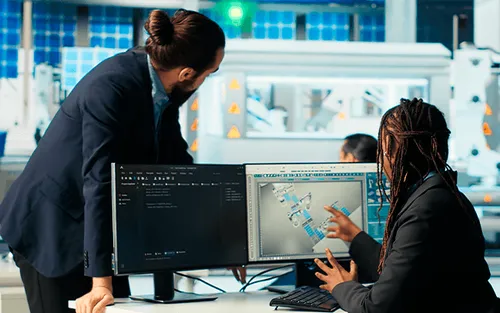Nowadays, artificial intelligence is one of the fastest advancing technological topics, we can already find it applied in several areas.
For example: in the post-processing of photographs or video games, robotics, and of course, in programming.
GPT-3 from the company OpenAI is a model language capable of autocompleting texts or programming code, just by giving it a few commands it can generate the HTML and CSS code necessary to fulfill the proposed task: we can ask it to create a website with a few buttons, a title, and images, it can even create entire articles on a specific topic.
Another use that can be given to this type of technology is to help when creating a code in a programming language. The AI through an autocomplete can suggest code sentences that suit our requirements, as well as solve syntax and typing errors.
One of the tools where you can test the use of GPT-3 today and see it in operation is GitHub Copilot, developed by GitHub and OpenAI, which is available as an extension of Visual Studio Code. Its function is to suggest auto-completion of lines of code. This tool is still under development and is not 100% but it demonstrates the capabilities and the future of artificial intelligence focused on programming.
This scenario where IA is capable of programming raises the question of whether the role of the programmer will be replaced by a machine. In the short term, the most basic programming tasks will be done automatically, which will affect less experienced programmers or those in training. Since it will be faster and cheaper to use tools such as GPT-3. However, these technologies are not powerful enough to fully replace humans, so experienced programmers are still indispensable and will probably be in the future.








